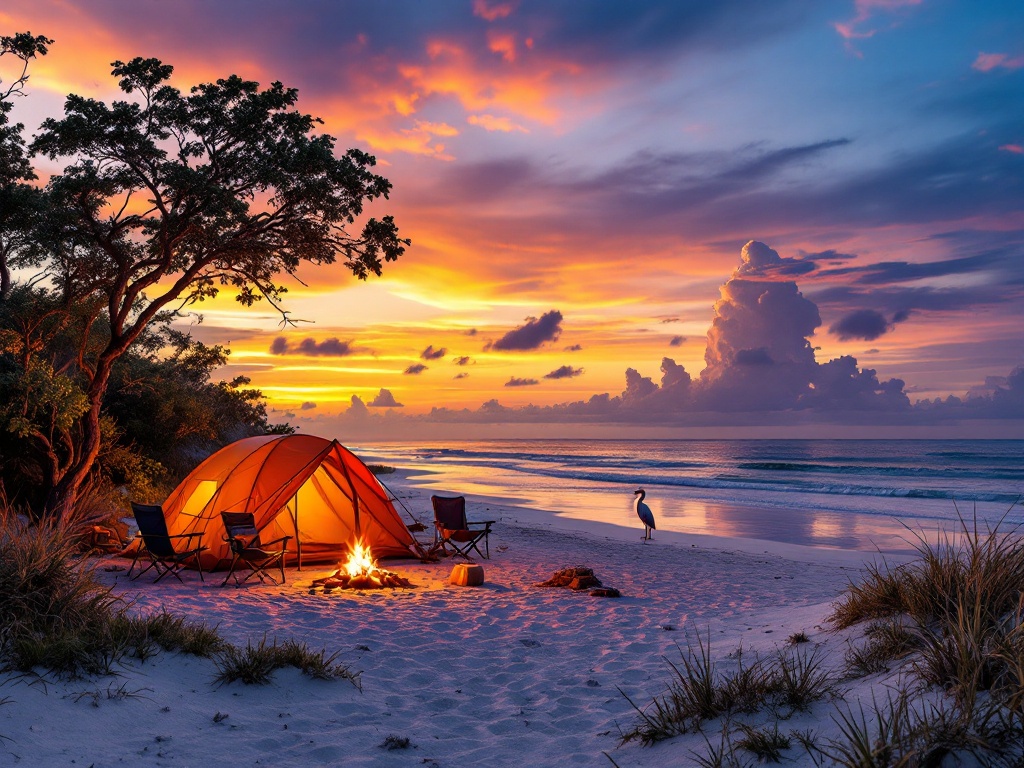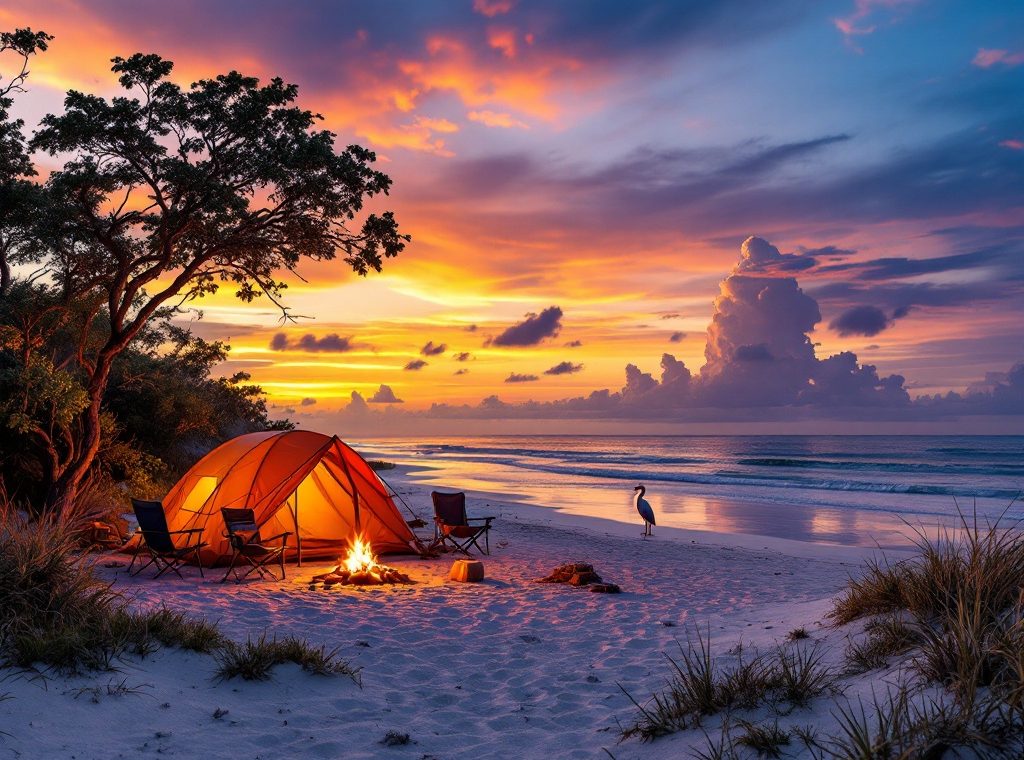Beach Camping: Is It Allowed Everywhere?
Dream of camping on Florida’s pristine beaches? Discover secluded shores like Anclote Key, Shell Key, and Keewaydin Island for unique beachfront experiences. While camping directly on the sand is often restricted, designated campgrounds offer amazing alternatives. To protect these natural wonders, permits and reservations are usually required. Learn essential guidelines for campfires, waste disposal, and respecting wildlife. Plan ahead and secure your spot for an unforgettable beach camping adventure! Read on to learn more.
Important information

- Beach camping is not universally allowed; check local guidelines before setting up camp.
- Permits and reservations are typically required, especially in Florida state parks and protected areas. Contact park services for details.
- Camp only in designated areas to minimize environmental impact and for safety. Rules about campfires, noise, and waste disposal must be followed.
- Florida’s beaches often have designated campgrounds behind the dunes, not directly on the sand. Reservations are highly recommended due to demand.
- Protect Florida’s natural resources by following all guidelines and regulations. Violations can result in penalties.
Beach Camping: Is It Allowed Everywhere?
Camping is not permitted on every beach. Developed shorelines, particularly near residential areas, often prohibit it. However, you might find designated campsites on more secluded, undeveloped beaches, many of which are protected areas. Always check local guidelines before setting up camp.
Guidelines and Regulations for Beach Camping
Florida’s state parks enforce beach camping guidelines to protect the state’s natural resources. These regulations, often strict on protected beaches, help safeguard vital ecosystems. Campers usually need permits and must follow environmental protection measures within designated camping zones. Because specific rules vary by beach, contacting park services for local information is essential. Common regulations address campfires, noise levels, tent placement, waste disposal, and protecting wildlife.
Obtain necessary permits. Contact park services for information on permits and reservations, as they are typically required for beach camping.
Adhere to designated camping zones. Camp only in designated areas to minimize environmental impact and ensure safety.
Follow environmental protection measures. Observe all posted regulations regarding waste disposal, campfire restrictions, and protecting local flora and fauna.
Respect noise level regulations. Maintain a reasonable noise level, especially during quiet hours, to respect other campers and wildlife.
Dispose of waste properly. Pack out all trash and use designated disposal facilities to keep the beach clean.
Beach Camping Rules: What Campers Should Know
Florida’s beautiful beaches don’t allow camping directly on the sand, but designated campgrounds, often nestled behind the dunes, offer a fantastic alternative. Due to high demand, reservations are recommended. Be aware that campfires, alcohol, and excessive noise may be restricted. Remember to leave no trace by packing out all trash and respecting the local wildlife. Check for any required permits or fees before you go to ensure a smooth and memorable beach camping trip. Here’s a helpful checklist for planning your Florida beach camping adventure:
- Reserve your campsite in advance, especially during peak season.
- Familiarize yourself with regulations regarding campfires, alcohol, and noise levels.
- Pack out all trash and respect the natural environment.
- Check for necessary permits and fees.
- Be mindful of local wildlife and maintain a safe distance.
Reservation and Permitting Information
Planning ahead is key for camping on Florida’s popular beaches, especially during peak seasons. Reservations are often necessary, so book your spot in advance. Don’t forget to secure any required permits and check the specific campground’s rules for a smooth and enjoyable trip.
Where Can You Camp on Florida’s Beaches?
Discover Florida’s hidden gems: Anclote Key, Shell Key, and Keewaydin Island. These secluded shores offer unique camping experiences with unrestricted access to pristine beaches and exploration at your own pace.
Understanding Camping Regulations in Florida
Protect Florida’s natural beauty by following these camping guidelines in state parks and national seashores. These regulations help preserve these special areas, and complying with them prevents penalties. Rules vary, from designated camping zones to required permits. Contacting local authorities or park services provides location-specific details. Plan ahead and enjoy your Florida adventure!
Research camping regulations. Different parks have specific rules, so research the area you plan to visit. Check for designated camping zones and required permits.
Contact local authorities. Reach out to park services or local authorities for location-specific details and any updates to regulations.
Plan your trip. Planning ahead ensures a smoother and more enjoyable camping experience. Reserve campsites in advance if necessary.
Camping in State Parks and Protected Areas
Planning a camping trip to a state park? Reserve your campsite and obtain any necessary permits in advance. These safeguards protect our parks by minimizing environmental impact and preserving natural resources. Campfire restrictions, proper waste disposal, and limited pet access might be in place. Always check the specific park regulations before your visit, as guidelines vary. Be aware that violations can result in fines or even eviction.
Reserve your campsite and obtain necessary permits in advance to secure your spot and contribute to environmental protection.
Check specific park regulations before your visit, as guidelines regarding campfires, waste disposal, and pet access vary.
Be aware of potential violations that can result in fines or eviction to ensure a smooth and enjoyable camping experience.










